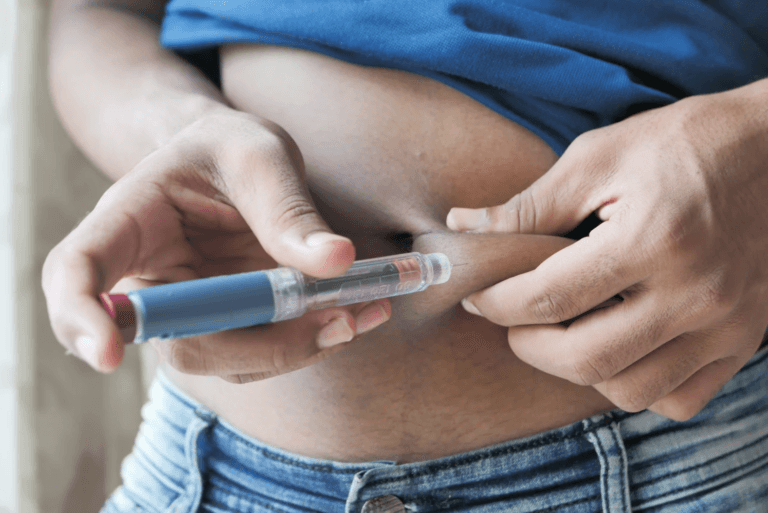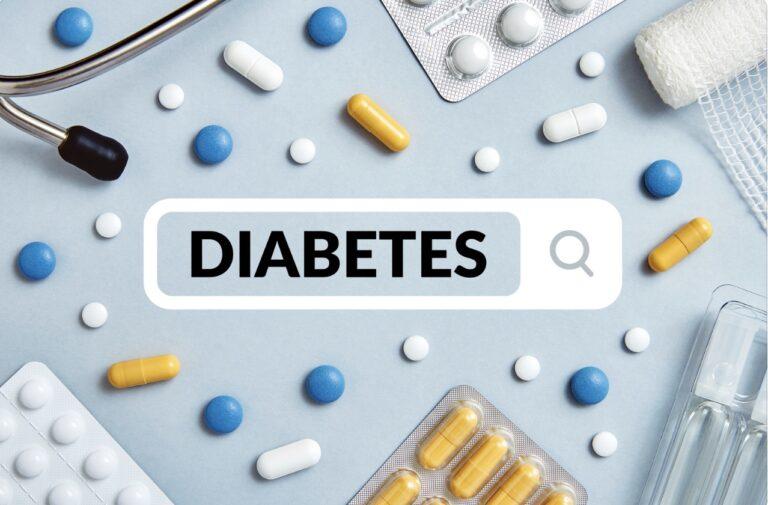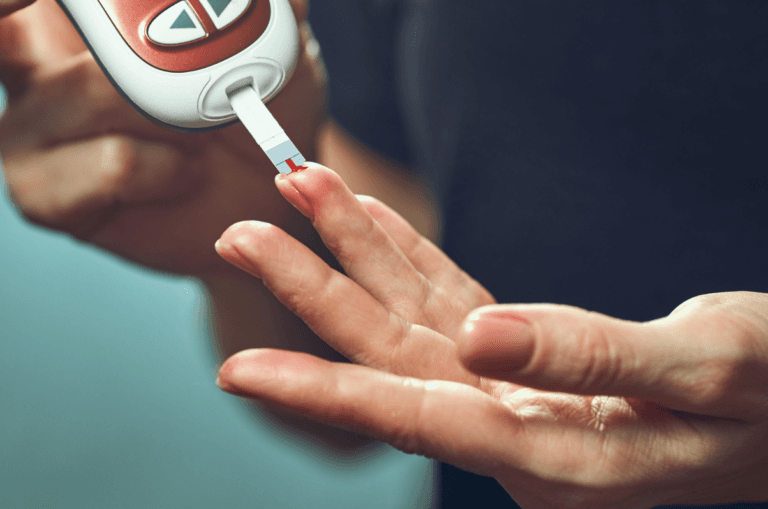
According to Diabetes UK, 1 in 10 people over the age of 40 years in the UK now have type 2 diabetes. The number of people living with diabetes in all its forms in the UK has reached 4.7 million and is expected to reach 5.5 million by 2030.
Diabetes, also known as diabetes mellitus, is a serious condition. It’s important to be aware of the signs and symptoms that may occur with this condition. This way, you can seek treatment early if necessary. Here are 10 warning signs of diabetes caused by high blood glucose levels or hyperglycemia. If you experience any of these, consult your healthcare professional.
1. Frequent urination
One of the early symptoms of diabetes is increased urination. There are two main reasons for this. First, when blood sugar levels are high, the body tries to get rid of the excess sugar by excreting it in the urine. Second, high blood sugar levels cause fluid to be pulled out of the tissues and into the bloodstream. This increased volume of fluid in the blood leads to increased filtration by the kidneys, which results in more urine being produced. While increased urination can be frustrating, it is an important symptom to be aware of, as it can be an early sign of diabetes.
2. Increased hunger and thirst
Diabetics often suffer from increased hunger and thirst. You will notice you’re increasingly hungry. Your body has plenty of extra glucose in the blood but your hunger results from your cells becoming malnourished because you lack the insulin required to allow the glucose to enter your cells.
Your thirst increases because you lose so much water in your frequent urination that your body begins to dehydrate. If you find yourself constantly thirsty, it could be a sign that your body is not able to properly process sugar. You may also experience an extremely dry mouth.
3. Feeling tired and fatigued
Fatigue and tiredness are common symptoms of diabetes. There are a few reasons why this may be the case. First, high blood sugar levels can cause dehydration, which can make you feel tired. Second, when you have diabetes, your body has to work harder to process glucose, which can lead to fatigue. Third, fluctuating blood sugar levels can also cause fatigue. When your blood sugar drops, it can cause feelings of weakness and tiredness.
4. Weight loss without trying
One of the earliest signs of diabetes is unexplained weight loss. Though it may not seem like a cause for concern at first, rapid and unexplained weight loss can be a sign that your body is not able to process glucose effectively. When you have diabetes, your body either doesn’t produce enough insulin or doesn’t respond properly to the insulin it does produce. As a result, glucose builds up in the blood instead of being used for energy. Over time, this can lead to weight loss as the body breaks down muscle and fat for energy. If you are losing weight without trying, it’s important to speak to a doctor as it could be a sign of diabetes.
5. Blurred vision
Diabetic retinopathy is a complication of diabetes that can lead to blurred vision and, in severe cases, vision loss. It occurs when high blood sugar levels damage the small blood vessels in the retina, the light-sensitive layer of tissue at the back of the eye.
Diabetic retinopathy usually develops slowly, and symptoms may not appear until the condition is advanced. In the early stages, diabetic retinopathy may cause no symptoms or only mild vision problems. However, as the condition progresses, it can lead to more severe vision problems, including blurry vision and difficulty seeing at night. Diabetic retinopathy is a leading cause of blindness in adults. However, it can be effectively managed with regular eye exams and timely treatment.
6. Repeated bouts of thrush or other vaginal infections in women
Women with diabetes are more susceptible to repeated bouts of thrush, a yeast infection of the vagina, as well as other vaginal infections. This is because elevated blood sugar levels can provide fuel for yeast and bacteria to grow.
In addition, diabetes can cause changes in the vaginal environment that make it easier for infections to take hold. For example, diabetes can lead to changes in the normal acidity of the vagina, making it more alkaline. This can create an environment that is more favourable for the growth of yeasts and other organisms.
Finally, diabetes can cause damage to the blood vessels, which can reduce circulation and result in a build-up of sweat and moisture in the genital area. This provides an ideal environment for bacteria and yeast to proliferate.
7. Skin changes
Acanthosis nigricans is a skin condition characterised by patches of dark, velvety skin. It typically occurs in the armpits, neck, and groin and can also affect the elbows, knees and other body folds. Although it can occur in anyone, acanthosis nigricans is most commonly seen in people who have diabetes or are overweight. It is thought to be related to insulin resistance and can signify a higher risk of diabetes.
8. Cuts or wounds that are slow healing
When you have diabetes, even a small cut or wound can take longer to heal. That’s because diabetes can damage the nerves and blood vessels, which reduces the supply of oxygen and nutrients to the area. As a result, the wound is less able to fight off infection and repair itself. High blood sugar levels can damage small blood vessels, making it difficult for the body to deliver oxygen and nutrients to the wound site.
In addition, diabetes can cause nerve damage, which can make it difficult to feel pain or other sensation in the affected area. As a result, wounds can often go unnoticed until they become infected. The infection can then spread quickly, making the wound even more difficult to heal. In some cases, diabetes can also cause poor circulation, which further slows the healing process.
9. Frequent infections
Diabetics are more susceptible to infections for several reasons. One is that they often have urinary tract infections because excess sugar in the urine provides a breeding ground for bacteria. Bacteria enter the urinary tract through the urethra and multiply in the bladder.
Diabetics are also more likely to get skin infections, such as cellulitis, which is caused by bacteria that enter the skin through a break in the surface. If you have diabetes, you’re more likely to have dry skin and itchy skin which can create breaks that provide an entry point for bacteria. In addition, diabetes can damage the immune system, making you less able to fight off infection. As a result, diabetics are at an increased risk for a wide range of infections.
10. Feet or leg numbness
Feet or leg numbness occurs because of nerve damage, also called diabetic neuropathy, caused by high blood sugar levels damaging the nerves. It is a serious complication of diabetes.
In most cases, the first sign of nerve damage is a tingling sensation or mild pain. However, over time the nerve damage can become more severe, causing loss of sensation or paralysis. Diabetes damages nerve tissue by preventing blood sugar from being properly metabolised. This can lead to inflammation and the buildup of toxins that damage nerve cells. In some cases, nerve damage can be reversed with treatment. However, once nerve tissue is damaged, it will not regenerate completely. As a result, diabetic neuropathy is a progressive condition that can eventually lead to disability.
Diabetes risk factors
There are two different types of diabetes, the signs of type 2 diabetes, in particular, is not always obvious. That’s why it can take up to 10 years for your doctor to diagnose type 2 diabetes and even longer for some people! Type 1 diabetes affects younger adults because they typically get their symptoms after birth or early childhood whereas those with type 2 diabetes may not show any recognisable signs until their 40s.
Risk factors for diabetes include:
- Age – your risk increases with age
- Ethnicity – if you are white and over 40 years your risk increases. If you are over 25 and are from an African-Caribbean, Black African, or South Asian background your risk increases
- Family history – you are two to six times more likely to get type 2 diabetes if you have a parent, brother, sister or child with diabetes
- High blood pressure – this condition increases your risk of developing diabetes
- Heart disease – this condition increases your risk of developing diabetes
- Prediabetes – is when your blood sugar is higher than normal but is not high enough to be type 2 diabetes. Making lifestyle changes, improving your diet and increasing your physical activity can stop the progression
- Gestational diabetes – is a condition that can develop when you are pregnant and you have never had diabetes before. A history of gestational diabetes can increase your risk of developing diabetes later on in life
- Diabetes is a complicated condition, particularly when you have other health problems. There are different types of diabetes and many risk factors linked to the condition. If you’re experiencing any symptoms of diabetes, be sure to speak with your healthcare provider. The test for diabetes is often a simple blood test
Early diagnosis and treatment are essential for maintaining good health in addition to preventing serious complications like kidney disease or blindness. Symptoms of diabetes can be frightening but don’t worry. If you are diagnosed with diabetes you will receive support from trained healthcare professionals who will give you diabetes and lifestyle information aswell as the practical skills you need to self-manage your diabetes.
Sources
Medical Disclaimer
NowPatient has taken all reasonable steps to ensure that all material is factually accurate, complete, and current. However, the knowledge and experience of a qualified healthcare professional should always be sought after instead of using the information on this page. Before taking any drug, you should always speak to your doctor or another qualified healthcare provider.
The information provided here about medications is subject to change and is not meant to include all uses, precautions, warnings, directions, drug interactions, allergic reactions, or negative effects. The absence of warnings or other information for a particular medication does not imply that the medication or medication combination is appropriate for all patients or for all possible purposes.










